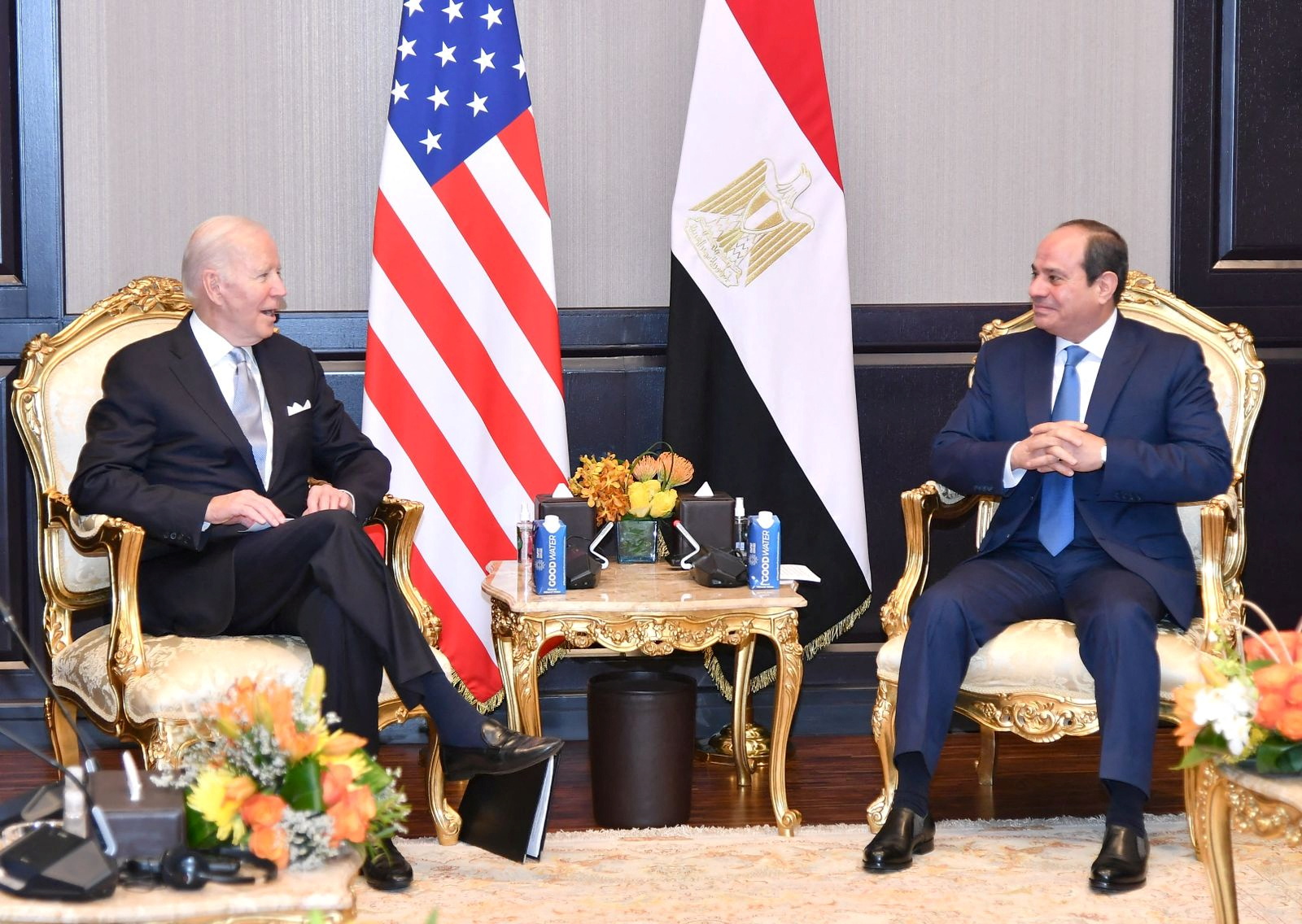
Egypt was planning to manufacture rockets for Russia but then suspended that effort and decided to supply ammunition to Ukraine after talks with United States officials, The Washington Post has reported, citing leaked intelligence documents.
The Post had reported last week that Egyptian President Abdel Fattah el-Sisi secretly planned to produce 40,000 rockets for Russia. But in a new report on Thursday – based on leaked Pentagon files that had been circulating online – the newspaper said Cairo suspended that push in early March.
The Washington Post said Egypt also approved the sale of artillery ammunition to the US “for transfer to Ukraine”, calling the shift an “apparent diplomatic win” for President Joe Biden’s administration.
Egypt, which enjoys warm ties with Russia despite being a close US ally, has previously denied plans to produce rockets for Russian forces, stressing that it is pursuing a policy of “noninvolvement” in Russia’s war in Ukraine.
Last week, US authorities arrested an Air Force National Guard member, accusing him of posting online secret documents meant for top Pentagon officials.
The files, which first appeared on the social media website Discord, included details of Western military support to Ukraine, information about Russia’s war effort and intelligence collected from allied states.
US officials have not denied the validity of the documents, acknowledging that they “present a very serious risk to national security” and appear to be real, though in some cases altered.
Al Jazeera has not seen the documents concerning Egypt.
The Biden administration has been trying to rally allies to Ukraine’s aid, warning countries across the world against assisting Russia’s war efforts or violating Washington’s sanctions against Moscow.
Last week, White House national security spokesperson John Kirby said the US has seen “no indication that Egypt is providing lethal weaponry capabilities to Russia”, stressing that Cairo remains a “significant security partner” in the region.
Several US officials have visited Egypt this year, including Defense Secretary Lloyd Austin, who met with el-Sisi in March.
“He [Austin] provided updates on Russia’s unprovoked war of aggression against Ukraine, its global economic consequences, and the threat that this conflict poses to the rules-based international order,” the Pentagon said after the meeting.
With more than $1bn in annual aid, Egypt is one of the top recipients of US military assistance in the world.
But Biden has been facing pressure from progressives and rights advocates to place conditions on US aid to Egypt to push el-Sisi’s government to improve its human rights record.
Although the US Department of State held onto a small part of the aid to Egypt last year, it still approved a $2.5bn arms deal with the country despite rights concerns.
Biden had vowed to centre human rights in US foreign policy early in his White House tenure.
Signalling a break from his predecessor, Donald Trump, Biden – as a candidate – declared “no more blank cheques” for el-Sisi, who came to power in a 2013 military coup that overthrew President Mohamed Morsi.
Still, since Biden took office, his administration has regularly praised the Egyptian government, including for its efforts to act as a mediator between Israel and Palestinian groups.
“Egypt has helped play a useful role in terms of some of the negotiations that have been going on in the region,” Kirby said last week.







